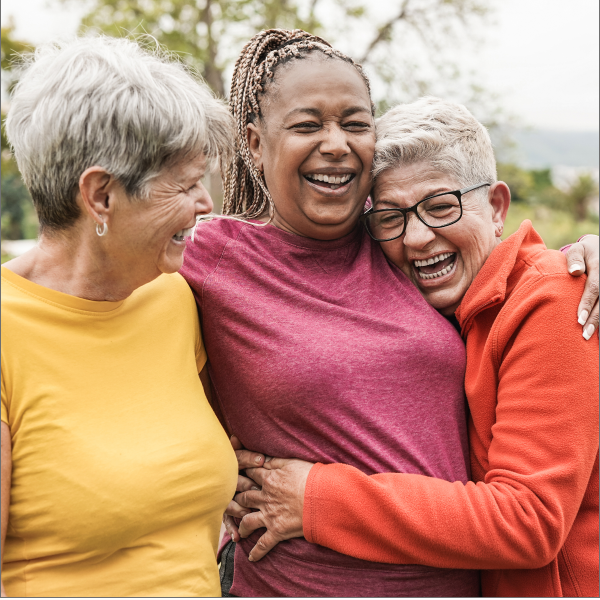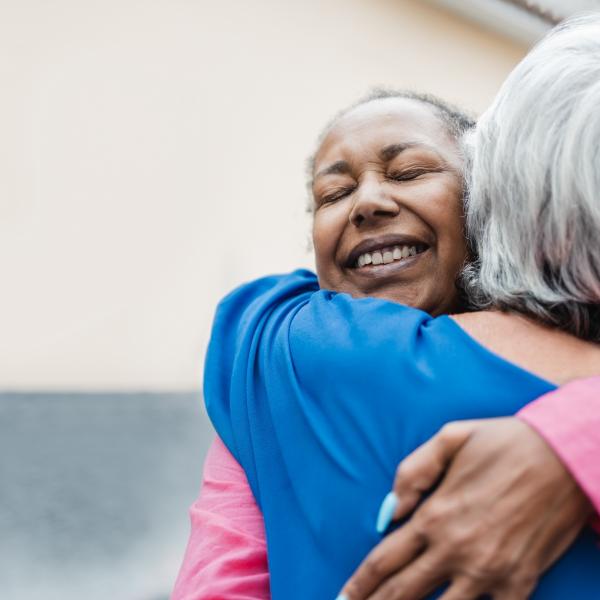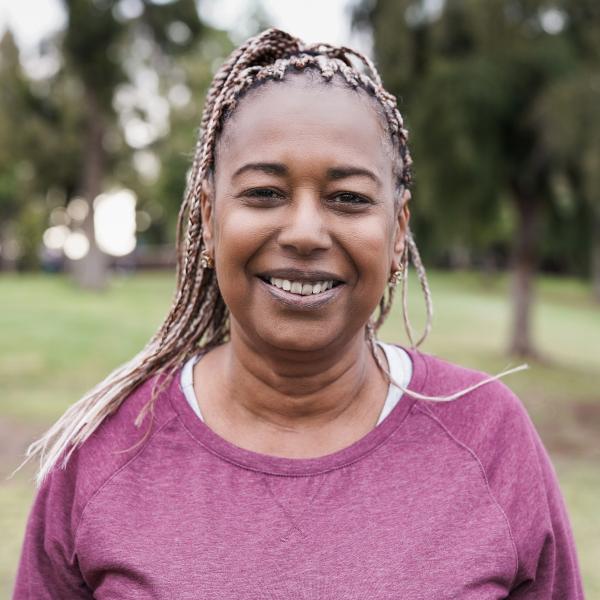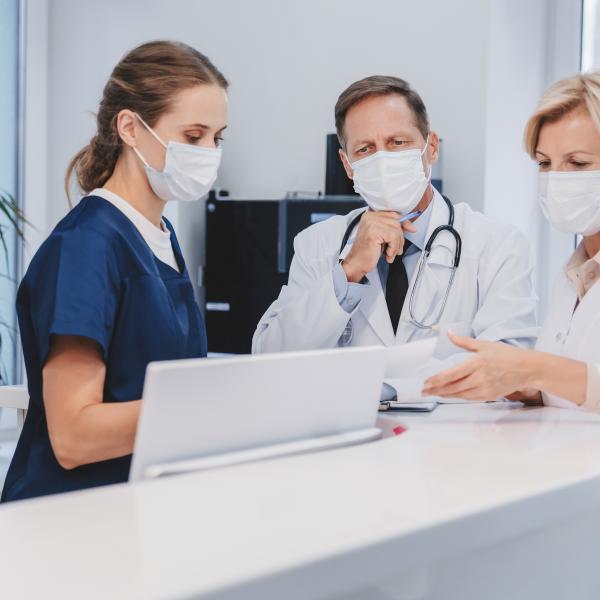You Need to Know
You Need to Know
Persistent bloating is not normal.
This could be a sign of ovarian cancer. If you experience uncomfortable fullness or swelling in the abdomen that doesn’t come and go, you must get it checked by a doctor. It’s probably nothing serious, but if it is cancer, finding it early can make it easier to treat. Find out more about ovarian cancer.
Bleeding after the menopause is not normal.
The main symptom of womb cancer is bleeding after the menopause. ‘You Need to Know’ aims to increase awareness of this symptom and the importance of getting it checked by a doctor. It’s unlikely to be anything serious, but if we do find anything then the earlier it’s treated, the more successful treatment is. Read more below about womb cancer.
What is womb cancer?
Womb cancer (sometimes known as endometrial or uterine cancer) is a cancer that affects the womb. It is the 4th most common cancer in women.
The risk of womb cancer increases with age. While anyone with a womb can develop womb cancer, it is more common in older women who have been through the menopause.
In the UK, over 9,000 people are diagnosed with womb cancer each year and cases are rising.
If caught early, womb cancer is very treatable; 90% of women who are diagnosed at Stage 1 (early) survive the disease. There are also more treatment options available if the cancer is diagnosed early, some of which are considered ‘kinder’.
In North East London in 2018, Black and Asian women were proportionally more likely to be diagnosed with womb cancer at stage 4 (late) rather than at stage 1 (early). That is why the ‘You Need to Know’ campaign is spreading the word about the symptoms of womb cancer, so that you can recognise them early and get checked straight away.

What are the symptoms of womb cancer?
The main symptom of womb cancer is bleeding after the menopause. Other symptoms of womb cancer include:
- Bleeding after sex
- ‘Blood-stained’ vaginal discharge which can be pink, red or brown
- Bleeding between your periods (before the menopause)
- Periods that are heavier than normal for you (before the menopause).
It is important that any new or different bleeding, at any age, is checked by a doctor.

What is menopause?
Menopause is a natural stage of life when your periods stop due to hormone levels decreasing, and your ovaries stop producing eggs. In the UK, the menopause normally happens between the ages of 45 and 55 (but it can happen earlier or later).
Symptoms of the menopause will be different for every woman, but they can include: hot flushes, problems with memory and concentration, low mood, weight gain, vaginal dryness, and difficulty sleeping.
Once it has been 12 months since your last period, you will be considered to have been through the menopause.
If you have been through the menopause, any amount of blood is not normal and needs to be checked, whether a one-off bleed, ongoing bleeding, spotting, or even pink, brown or red discharge. There is no such thing as ‘one last period’ after the menopause, no matter what age you are.

What should I do if I experience bleeding after the menopause?
Don’t delay – contact your doctor at the first sign of bleeding after the menopause.
Many GP appointments are done over the phone or online, but you can ask for a face to face one. You will need to discuss all your symptoms and your medical history (including your period history).
After the appointment, keep a diary of your symptoms. With bleeding after the menopause, you should be referred to see a specialist within two weeks.
The specialist appointment is usually in-person at a clinic or hospital, with doctors who have more expert knowledge related to your symptoms. They may do further investigations to understand what is causing your symptoms and help decide if you need any treatment.

What happens next if you have bleeding after the menopause?
Nurse Elaine explains what you should do if you have bleeding after the menopause and what happens if you need to have more tests.
You Need to Know events
During February, March and April, The Eve Appeal will be hosting a series of educational events at a number of venues across North East London.
The hour-long talks will provide information on the menopause, gynaecological health, risk factors and symptoms of womb cancer and the process involved to investigate any symptoms.
If you would like to attend one of these sessions then look out for event details on the North East London Cancer Alliance and The Eve Appeal social media:
NEL Cancer Alliance - Facebook
NEL Cancer Alliance - Instagram
NEL Cancer Alliance - Twitter
The Eve Appeal - Facebook
The Eve Appeal - Instagram
The Eve Appeal - Twitter

Where can I find out more information?
For more information on Womb Cancer, visit The Eve Appeal website.
Download a leaflet:
For more information about our campaign, click on the link below.

References

